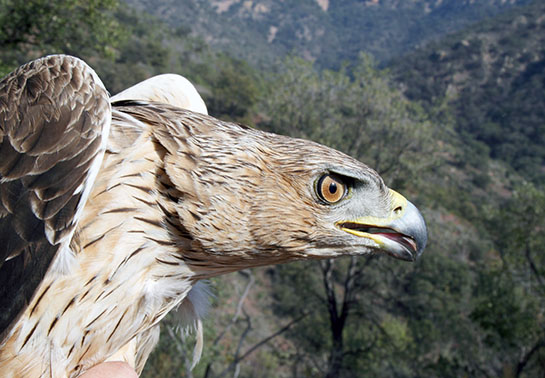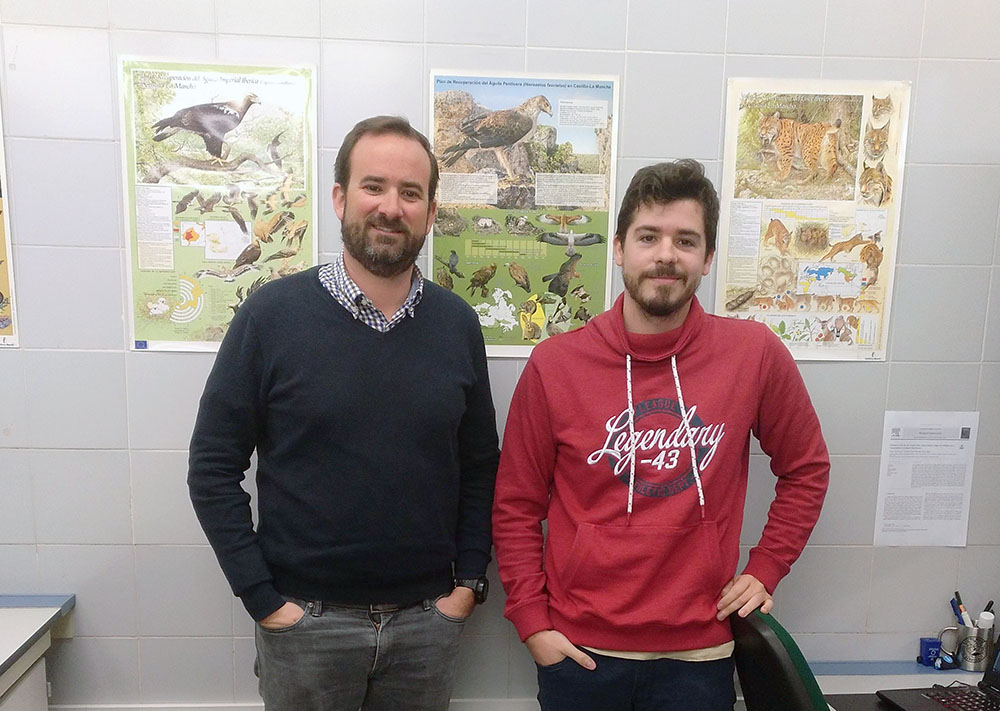A research on Bonelli’s eagle calls for reducing conflicts between human beings and wildlife
- Fundació Parc Científic
- January 24th, 2019

One research on Bonelli’s eagle of the Cavanilles Institute of Biodiversity and Evolutionary Biology of Universitat de València warns of the serious problems that recreative activities in natural parks have on this endangered species. It also calls on governments to take conservation measures which reduce the human impact on wildlife. The research was published in Biological Conservation Journal.
The conflicts between human beings and wildlife getting more and more concerning for the conservation biology. The number of inhabitants on urban area is increasing rapidly all over the world, and, as a consequence, the timeline pattern of natural area occupation aiming a recreative use is changing. This results in an increasingly greater number of visitants on weekends and public holidays. In wealthy societies is where this is particularly evident, since their inhabitants are the principal visitors of natural area on weekends and public holiday, inconveniencing wildlife during which is called ‘weekends effect’.
With the aim of assessing this inconvenience, some scientists of Universtitat de València have analysed the changes in behaviour of 30 Bonelli’s eagles from the natural parks in València and Castelló with a highest number of visitors on weekends. The Bonelli’s eagle is a highly endangered species in Europe, and it has high mortality rates among its individuals principally due to electrocutions, poisoning and bursts.
Thus, researchers receive telemetry data from eagles, which are equipped with the newest satellite transceivers, through GPS. This technology allows researchers to know the position of eagles every five minutes with high accuracy. Thanks to this technology, the miles travelled by these individuals can be daily calculated, and it is proved now that, on weekends, when human influence is higher on their habitats, they move from one place to another to find food, so they travel considerably more miles.
It could be irrelevant, but indeed it has important consequences for a so endangered species, as they keep away from their nests during longer periods when breeding. That means an increase of the reproduction failure risk, a higher energy consume, more difficulties to find prey and more probabilities of facing dangerous human infraestuctures for their life, such as power lines.
In this report published in Biological Conservation Journey, researchers are pressing for taking conservation measures focused on the reduction of conflicts between human beings and wildlife. This shall include the limitation of recreative activities such as hunting, climbing or trekking, and so on, in particular, during the most critical periods of the year (incubation and breeding). ‘It is necessary to find a balance between enjoying nature and respecting it’, indicates Pascual López, researcher of the Cavanilles Institute of Biodiversity and Evolutionary Biology and the project leader. ‘Data which the GPS emissors aport come from telemetry reseach and they are so accurate than ever before. It would be important to add this information to conservation plans of highly endangered species in order to have a more efficient management in this conflicts’, he concludes
References:
PERONA, A. m., URIOS., V., LÓPEZ-LÓPEZ, P. (2019) Holidays? Not for all. Eagles have larger home ranges on holidays as a consequence of human disturbance. Biological Conservation 231: 59-66 (doi: 10.1016/j.biocon.2019.01.010)

More information:
File in: Ciencias de la Vida
















